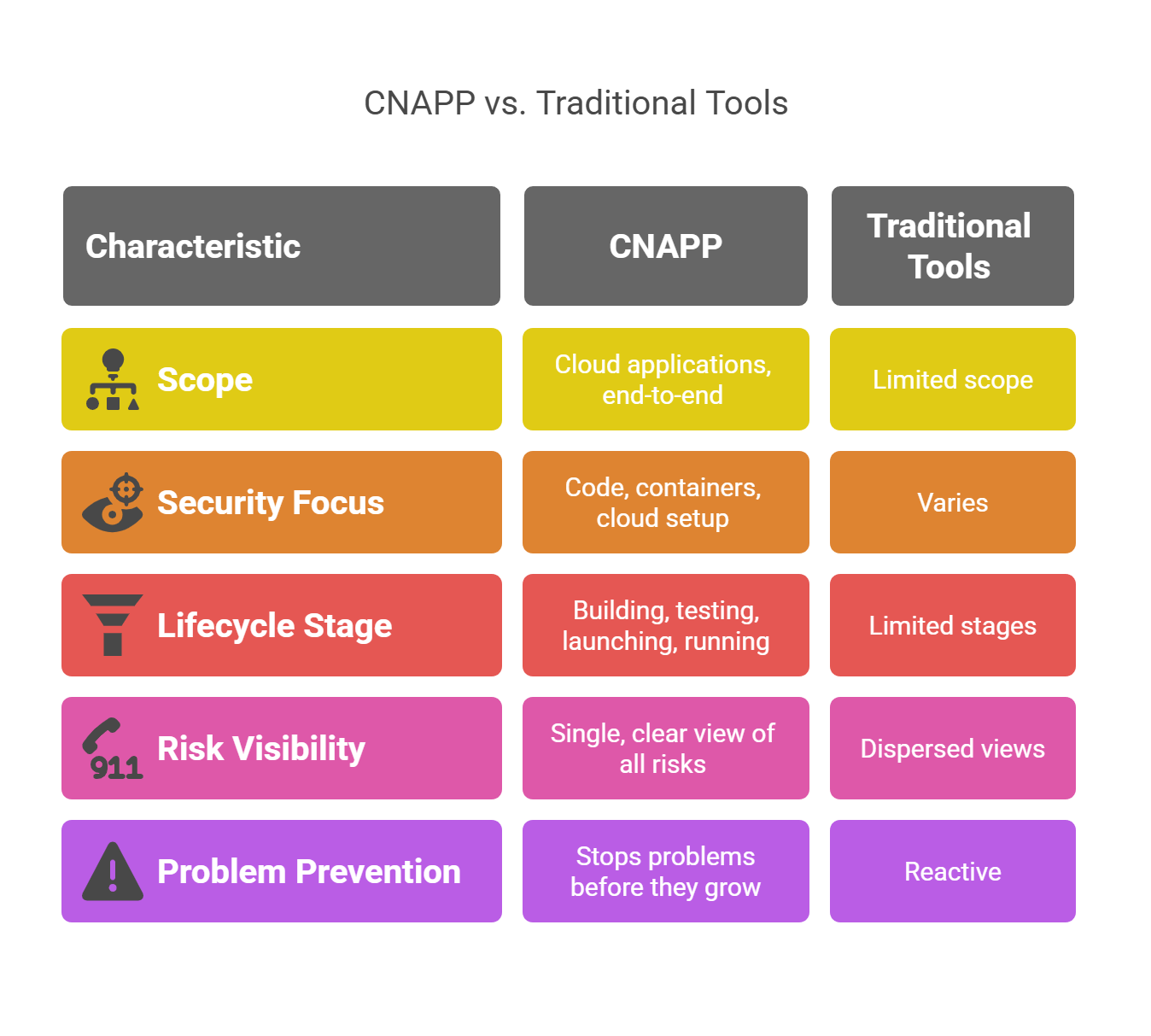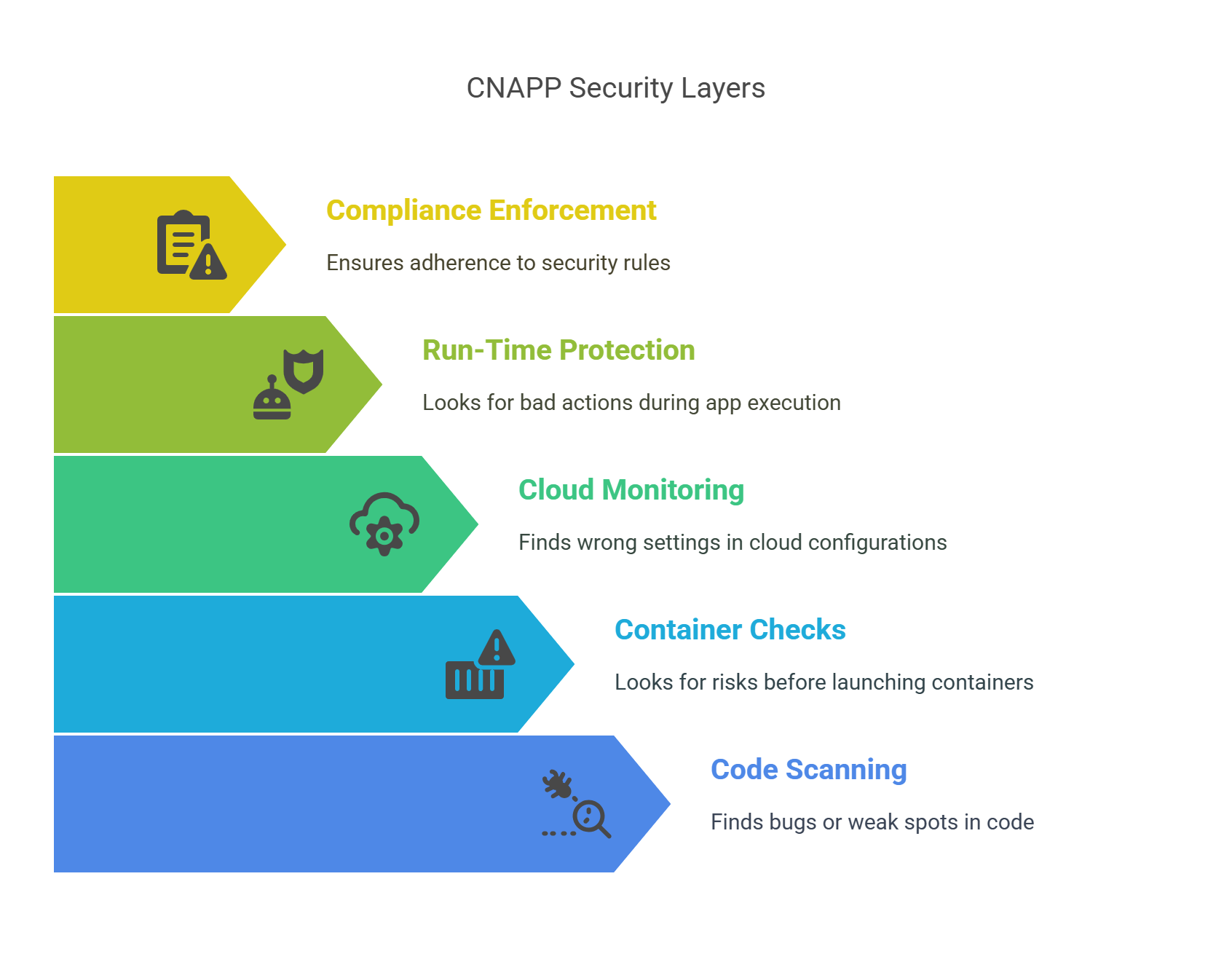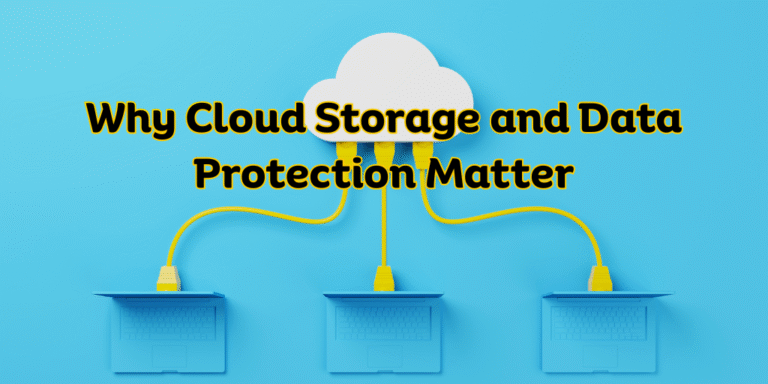More companies are moving their apps to the cloud. So, keeping those apps safe is now very important. Cloud Native Application Protection Platforms (CNAPP) help protect apps in the cloud.
In this guide, you’ll learn what CNAPP is, why it matters, and how it keeps your cloud apps safe. Whether you’re new to tech or have some experience, this article will help you understand CNAPP better.
What is a Cloud Native Application Protection Platform (CNAPP)?
The Rise of Cloud-Native Apps
Cloud-native apps are easy to build, scale, and manage. They run in small parts called containers. They use microservices and live in the cloud. This setup is fast and flexible, but comes with new risks.
What CNAPP Means
A CNAPP is a tool that protects cloud apps from start to finish. It secures your code, containers, and cloud setup. Unlike old tools, CNAPP works in every stage—building, testing, launching, and running.
CNAPP gives you one clear view of all security risks. It shows you what’s wrong, like weak spots, wrong settings, or rule breaks. This helps stop problems before they grow.

Key Features of CNAPP
1. Full View of Everything
CNAPP lets you see all parts of your cloud app. You can check containers, services, and networks all in one place.
2. Finds Threats Fast
CNAPP finds problems early while you build. Fixing issues early stops attacks later.
3. Always Watching
CNAPP watches your apps all the time. If new threats show up, it adjusts fast to keep you safe.
4. Keeps You on Track
CNAPP checks if you follow rules like GDPR, HIPAA, or SOC 2. It flags anything that breaks these rules.
5. Safe Coding
CNAPP works with your development tools. It adds safety steps while you build, so you don’t carry weak spots into live apps.
Why CNAPP Matters
More Online Threats
As more apps move to the cloud, threats grow. Old tools don’t work well in the cloud. CNAPP fills this gap by protecting every part of the app process.
Security from the Start
DevSecOps means adding security from the first step. CNAPP fits right into this model. It checks for issues during development, not after.
How CNAPP Works
Layered Security Steps
CNAPP uses many layers to protect your apps. Here’s what it does:
-
Scans Your Code: Finds bugs or weak spots while you write.
-
Checks Containers: Looks for risks before you launch.
-
Watches the Cloud: Finds wrong settings that could cause issues.
-
Guards at Run-Time: Look for bad actions while the app runs.
-
Follow the rules: Make sure you follow your security rules.

Benefits of Using CNAPP
1. Better Safety
CNAPP adds safety to each step. It finds threats fast and helps fix them before they become big problems.
2. Quick Response
If something goes wrong, CNAPP alerts you right away. You can act fast and lower the damage.
3. Saves Money
Fixing problems early costs less. CNAPP also helps you avoid fines for not following the rules.
4. Easy Compliance
CNAPP checks for compliance issues. It helps you meet legal rules without much extra work.
Best Practices for Using CNAPP
1. Start Early
Use CNAPP during development. That way, you can find and fix issues before launch.
2. Keep Monitoring
Always watch your apps. CNAPP should show you updates in real time.
3. Set Rules Automatically
Set CNAPP to follow your security rules. Let it fix issues on its own where possible.
4. Train Your Team
Make sure your team knows how CNAPP works. Teach them to follow best practices.
CNAPP vs Traditional Security Tools
1. Grows with You
Old tools were made for on-site apps. They don’t fit cloud needs. CNAPP was built for the cloud, so it grows as your app grows.
2. Shows You Everything
Old tools can’t see every part of cloud apps. CNAPP can. It gives a full view of your system.
3. Works with Dev Teams
CNAPP fits into DevOps. It helps teams build with safety in mind.
FAQs About CNAPP
What’s the difference between CNAPP and CSPM?
CSPM finds the wrong settings. CNAPP does more. It also finds bugs, blocks threats, and checks apps while they run.
Can CNAPP work across many cloud services?
Yes! CNAPP works with more than one cloud. It protects apps on any cloud platform.
Is CNAPP good for small businesses?
Yes. Small teams can use CNAPP too. It gives strong security without needing big teams.
How does CNAPP help with rules and laws?
CNAPP checks if your setup breaks any rules. It helps you stay within legal limits and avoid trouble.
Conclusion
Cloud Native Application Protection Platforms (CNAPP) keep cloud apps safe. As more apps move online, CNAPP gives you the tools you need to stay secure.
It helps spot risks early, fix them fast, and follow rules. CNAPP fits into how you already build and run your apps.
If your team is building apps in the cloud, CNAPP is a must-have. It gives you control, safety, and peace of mind.


